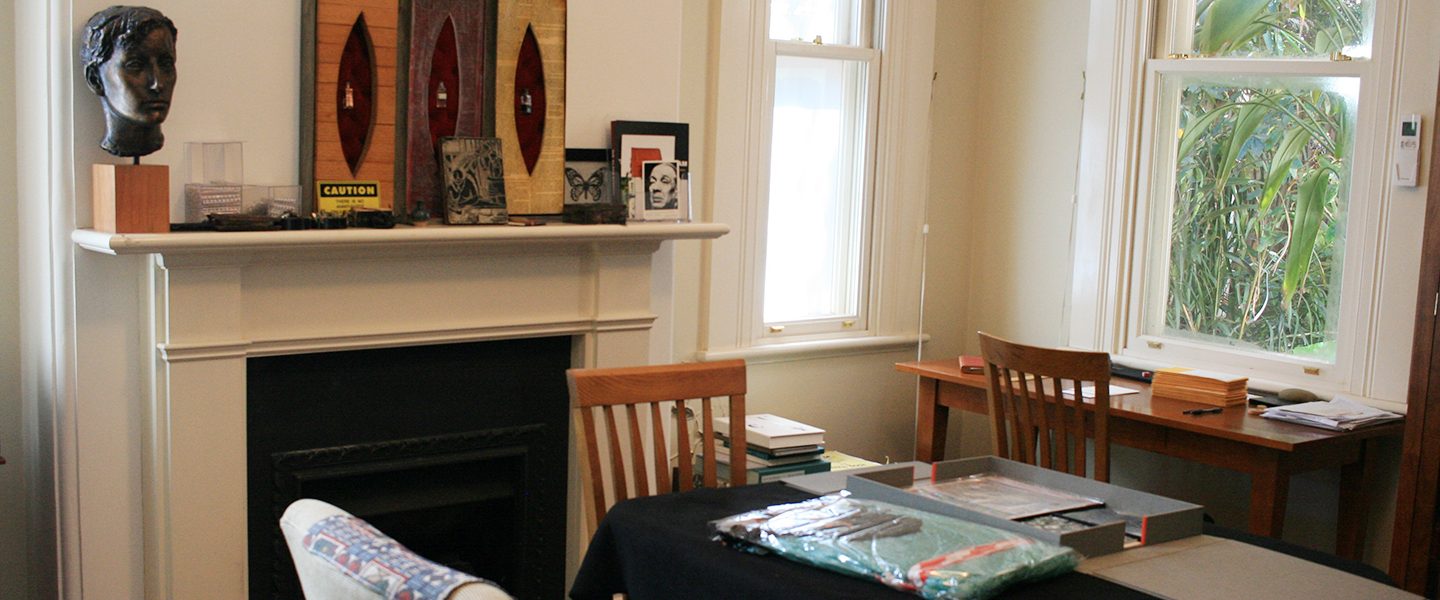
The origins of the Champion Books journey began as the Champion Newspaper– a fortnightly publication focusing mainly on local politics and cultural affairs for the Murray River border cities of Albury (NSW) and Wodonga (Victoria). It usually comprised 16 A4 pages of mixed editorial, cartoons, graphics and advertising and was sold for 20 cents a copy. Its life span was about six months with the first edition out in late May 1973. Ted Hopkins was the instigator and a contributor who managed a team of two other contributing founders; Paul Greene (artist and graphics) and Martin Curtis (writer and journalist).
This hectic operation was conducted in the backroom of an Albury fashion shop, Headquarters owned and operated by Ted and his young wife at the time, Sharon Hill. The Champion Newspaper was their first publishing adventure. It was feisty, imaginative and meant to irritate. It gained immediate local celebrity and widespread support, selling around 2000 copies per edition. The mayor of Albury was accused of corruption in the first edition. He immediately sued for defamation.
Other lawsuit threats and actual lawsuits followed after several allegedly provocative articles. The founders soon discovered a harsh reality of Australian editorial suppression – printers were equally liable in defamation lawsuits as the writers and publishers.
While the founders had no valuable assets and hence nothing to lose taking chances, the printer with assets could lose their business because of liable claims. As a result claimants first targeted the printer and ignored the publisher.
A valuable lesson was learnt. If you wanted to publish edgy material it was best to own the means of production or go underground. Ted chose the former course.
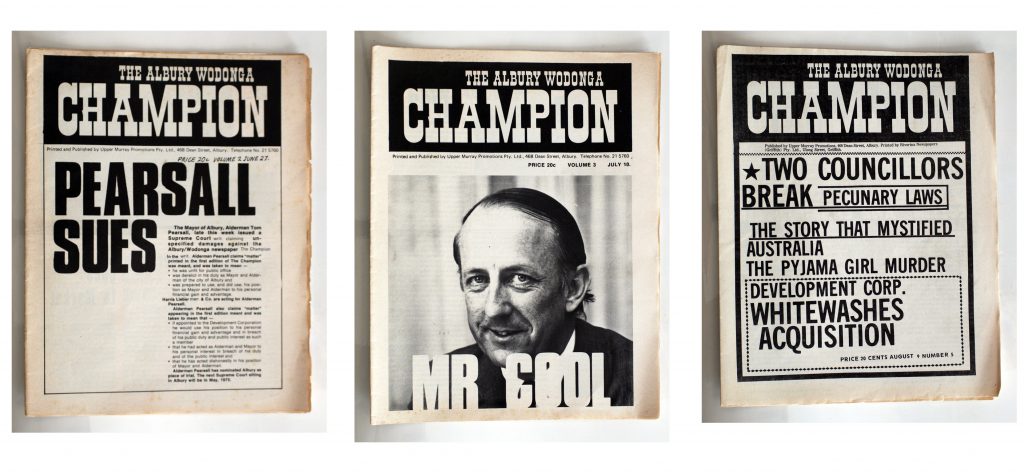
Ted’s father, Les was the founder of Leslie’s Drycleaners (later Civic Drycleaners) based in the rural city of Moe in the Latrobe Valley, Victoria. In his final years Les established a ‘hobby’ business in Moe, Leslie’s Instant Print.
It catered for his interest in communications and fascination with new technologies, in this case the marvels of recent innovations in accessible small offset printing machines and IBM ‘golf ball’ head typewriters. He was also determined to create a printing enterprise that could entice his youngest son, the aspiring poet, to return to the homeland and work in the family business.
The Champion Newspaper folded and the Headquarters shop was sold. Ted did in fact return to Moe in 1974 and start to learn the processes of typographical composition, plate making and small offset printing alongside his ailing father.
After Les died in 1975 Ted took over the fledgling instant print business. It soon became a financially bankrupted mess. An escape to Melbourne was planned and executed. The plan involved whisking two small offset presses and plate making equipment on the back of a truck to Melbourne to avoid detection from pursuing creditors. The move was carried out in 1976 and the destination was a pre-arranged rental— a shop and dwelling premises at 54 Greville Street, Prahran, Melbourne.
The Greville Street premise was narrow and double storied with a vacant shop fronting the main street with residential sections directly behind and upstairs. A backyard led to a tin garage with an entrance door accessible from the rear in Doon Street.
The vacant shop was converted to a lounge and reception area. The small-offset printing presses were located in the back garage and the rear of the premises became a combination of residential area and lay-out and plate making rooms.
Initially, Ted took a ‘real’ job with the commercial printer, Norman J Field, to learn the craft and pay the bills. In his spare time he began delving into experimental, small publishing under the auspice of Champion Books.
The Coals of Juniper by Albury writer Graham Jackson was the first book published in 1977. It was published in SRI spelling and attracted considerable interest because of the book’s originality, spelling reform credentials and its backyard / garage printing origins.

Ted soon resigned from his ‘real’ job and started the commercial print operation, Backyard Press. It expanded quickly taking on paying jobs, printing pamphlets and posters for rock bands and artists living in Greville Street at the time. A further development occurred when Marius Foley was the first person to knock on the door volunteering to help with printing and publishing radical material, commercial or otherwise. He had been impressed by the publicity The Coals Of Juniper was receiving and the story behind its publication.

The arrival and commitment of Marius settled the overlapping aegis between Backyard Press and Champion Books with Backyard Press focusing mainly on commercial jobbing for musicians, artists, political and cultural activists but also subsidizing the avant-garde publishing activities of Champion Books. A distinction between the overlapping entities is that Backyard Press was formally structured as a commercial worker co-operative with all members paid and entitled to ownership and participation in business decision making. Champion Books was purely volunteer work.
At its peak Backyard Press employed about 16 people while Champion Books volunteer numbers varied according to the task at hand. This expansion resulted in renting next door, 48 Greville Street in addition to the premises at 54. Like a tithing arrangement, it was the role of core Backyard Press members to make available an ample percentage of access, resources and skilling support for Champion Books endeavours.
During the early stages in this dual business operation, former kindergarten teacher turned sculptor and with a keen interest in culture studies and language, Angelika Oehme linked arms intimately with Ted and more. While not a formal member of the Backyard Press cooperative she became a guiding spirit and energetic worker for Champion Books expanding it to dimensions much wider than a small publisher devoted solely to publishing under-recognized writers and artists.

Increasingly, the work published ranged from the highly aesthetic to radical politics, to simply commercial, pure ephemera to conventional publications. Pragmatism lived alongside innovation. This diversity was evident in the range (or absence!) of titles. Most often publications were credited to Champion Books, but sometimes the Backyard Press imprint would be substituted and there are stunning examples of where the crediting was playfully chameleon-like or intended to somehow add to a publication’s meaning. Notable examples of this include The Book Of Slab with no specific identification as to who the author is, Art & a Texta by the new-Australian Art Magazine, Industrial Woman by the Industrial Woman Collective, Ethnic Avenger by Peter Lyssiotis and Pat Delmastro and Prodigal Daughters by Jayamane and numerous Rascals publications.

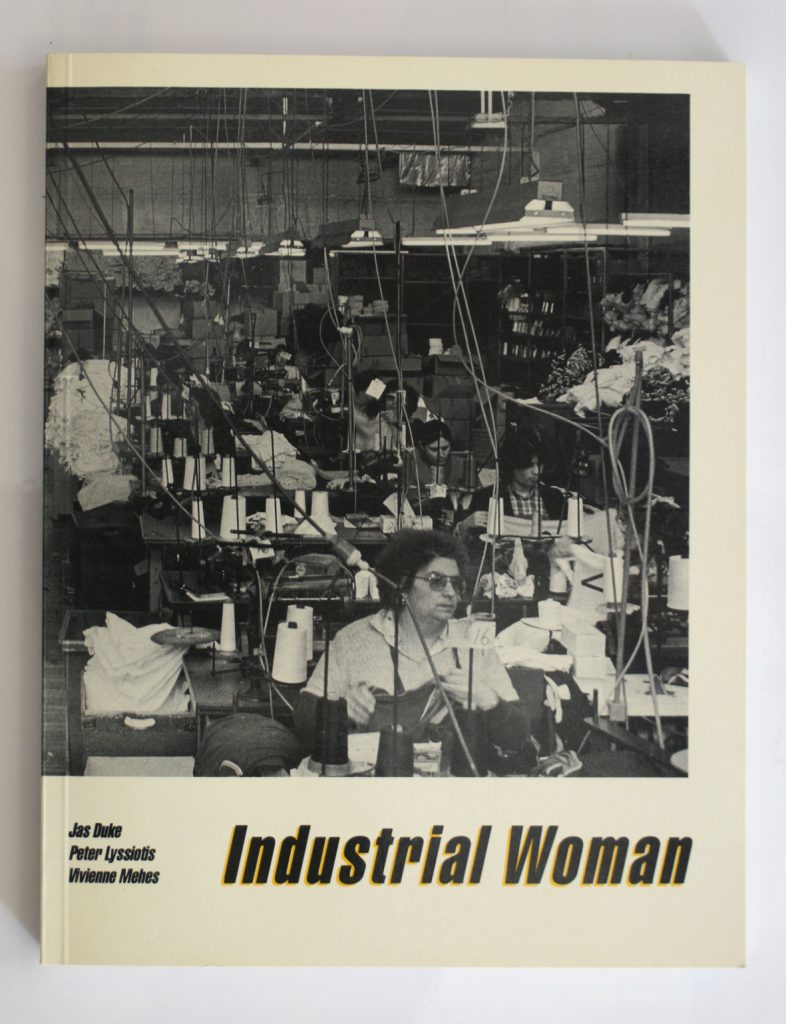
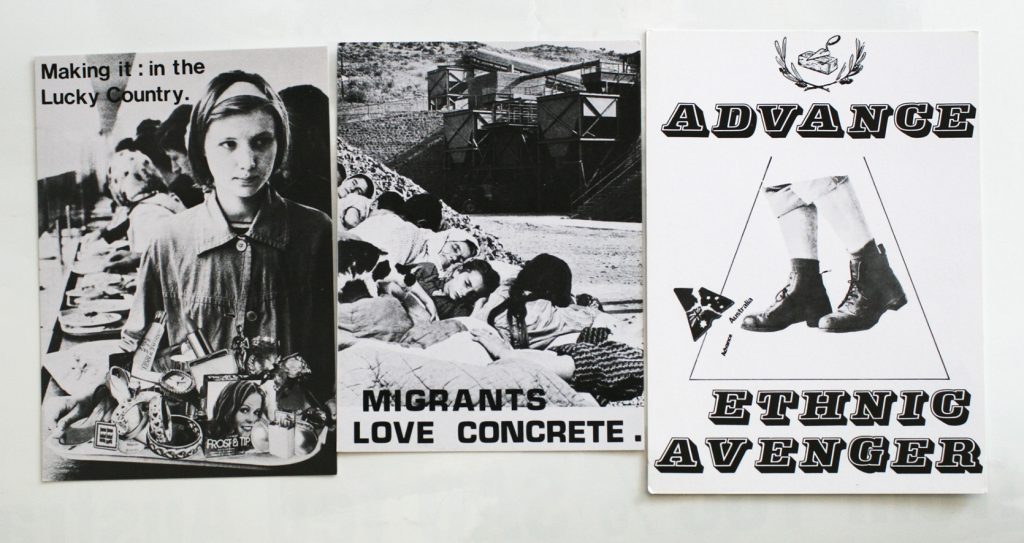
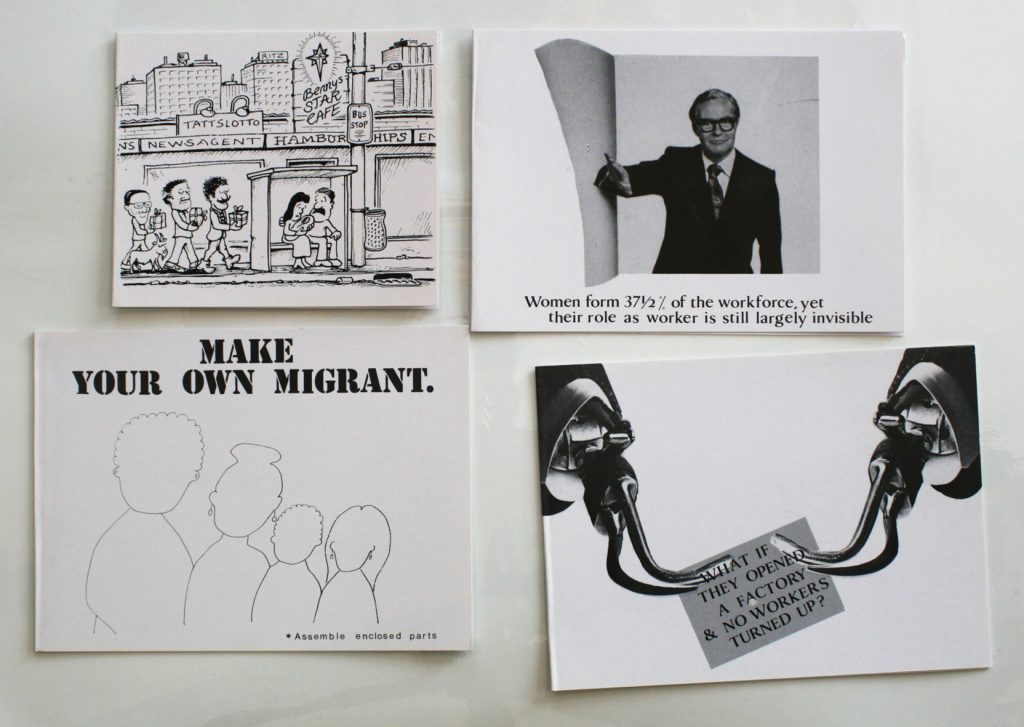
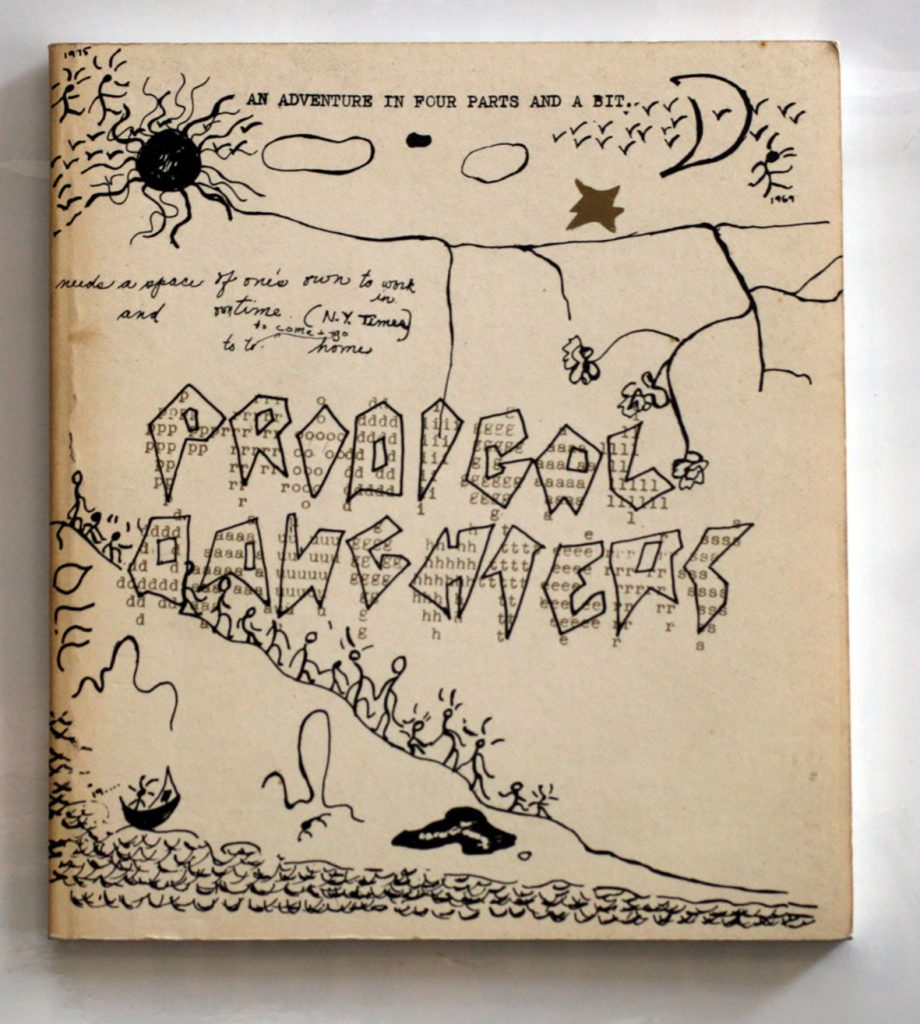
While several of the books produced are now considered artists’ books, at the time there was a wilful avoidance of terms such as ‘artists’ books’, ‘avant-garde’, ‘alternative’ or even ‘left wing’. The intent was to wilfully discourage preciousness. Fine Art traditions or any attempt to emulate a Bloomsbury-like ambience was antithetic to Champion Books endeavours. Rather the modus operandi was akin to that outlined in Walter Benjamin’s Art in the Age of Mechanical Reproduction; using the newest technologies in offset printing, plate making and computer generated typesetting the challenge was to engage these resources in expressiveness, experimentation and irony. Among the various monikers involved with the Backyard Press/Champion Books overlap was Rascals, which proved to be a good fit for many of the activities.
An example of this spirit and overlap is Teledex, the first major undertaking of Ted. Its fabrication in the form of a collection of poems organised alphabetically within a metal telephone-indexing box was accompanied by a glossy double-sided brochure boasting Teledex was an attempt to restore the credibility of poetry and plastics.

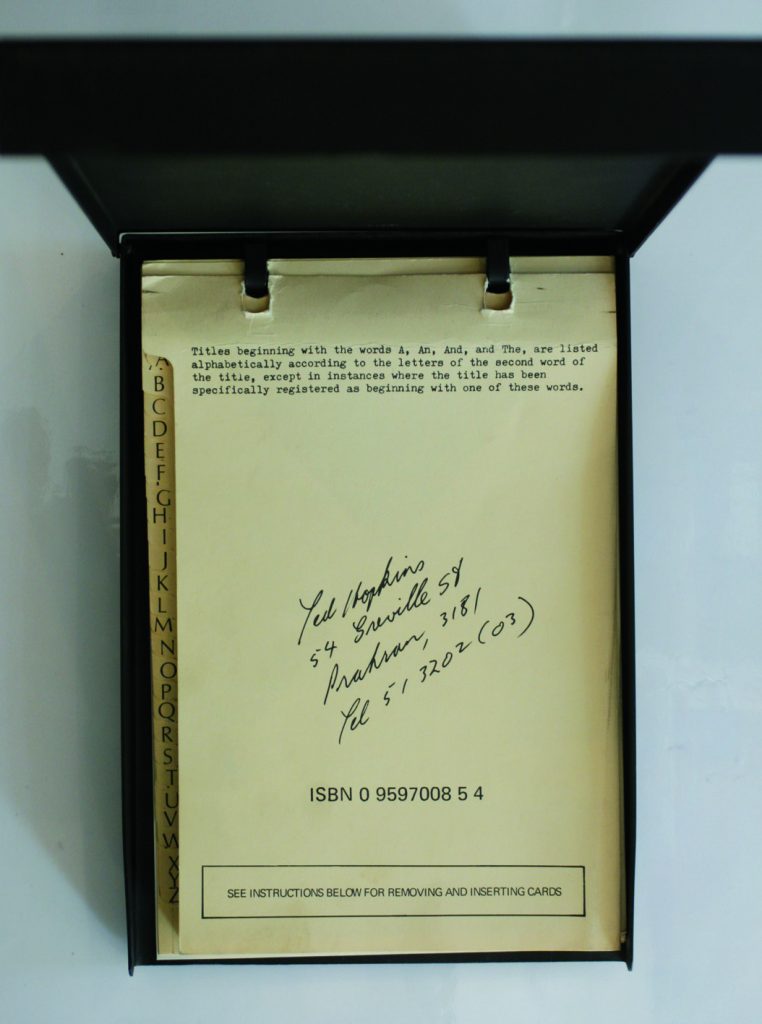
The glossy brochure produced for The Book Of Slab declared the book a denial of ‘mystification’ and ‘demystification’, claiming that its intention instead was civilization’s ‘re-mystification’. Within its mock Time / Life encyclopaedic covers The Book Of Slab compacts everything that has gone before into sequences of expressive offset print layouts, graphic tropes and writing dares.
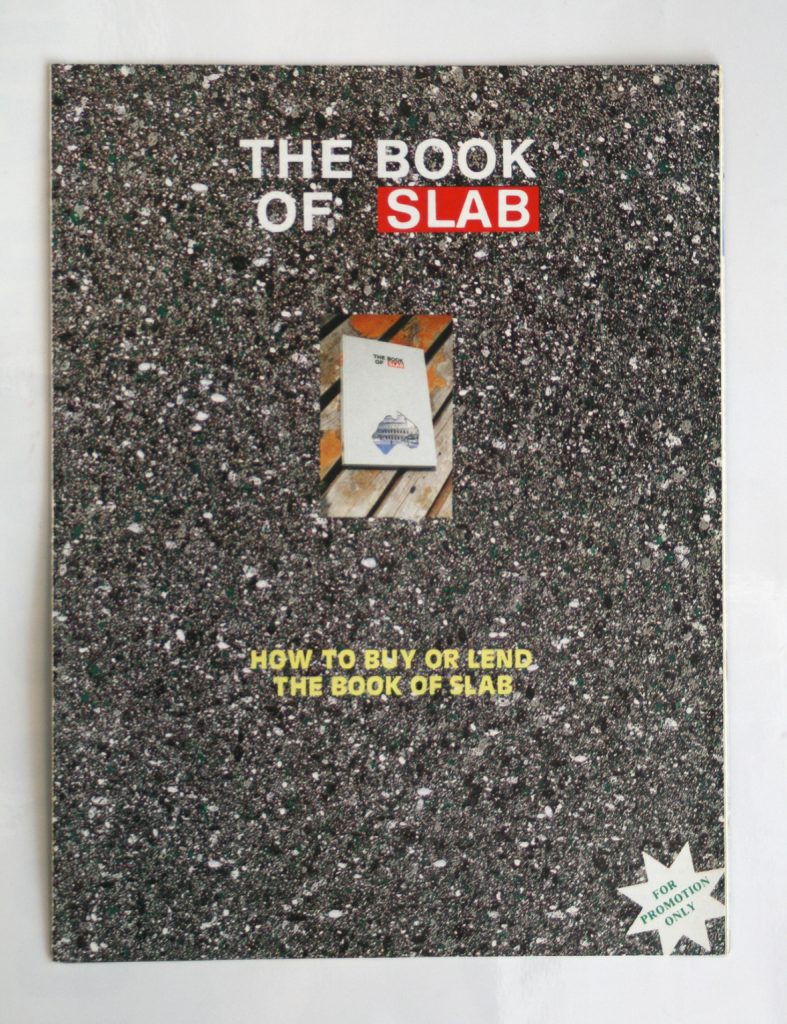
Also representative of the Champion Books / Backyard Press overlap is the production and publication of Peter Lyssiotis’ book Journey Of A Wise Electron. Peter ‘cold called’ at the front door of the establishment with a cardboard box in hand containing photos and photomontages from his recent Pinacotheca Gallery exhibition in Melbourne.

Ted & Co immediately recognized the potential for publishing the work in a book format which they believed would convey the spirit and meaning of the images more effectively than an exhibition on a gallery wall. In part this conviction was due to the special narrative quality of the images and their stark black and white tones. The trick was to create a hint of a typical photo album presentation via graphic design and applying the highest grade of duotone offset printing on quality papers. The impression of Journey Of A Wise Electron is a book that hovers between a commercial reproduction of the highest quality and a radical political view of society.
The decline of Champion Books coincided with the decision in 1986 by Ted to leave the Backyard Press printing cooperative. Proximity to printing chemicals had taken its toll and new endeavours, working more independently beckoned.
During the phase out period a final book was produced and published in keeping with the Champion Books ethos – All Things Opposite, a collection of essays on Australian Art by M.E. (Peg) McGuire. Angelika became determined to publish the elegant and probing essays previously ignored by publishers and the established Arts scene.
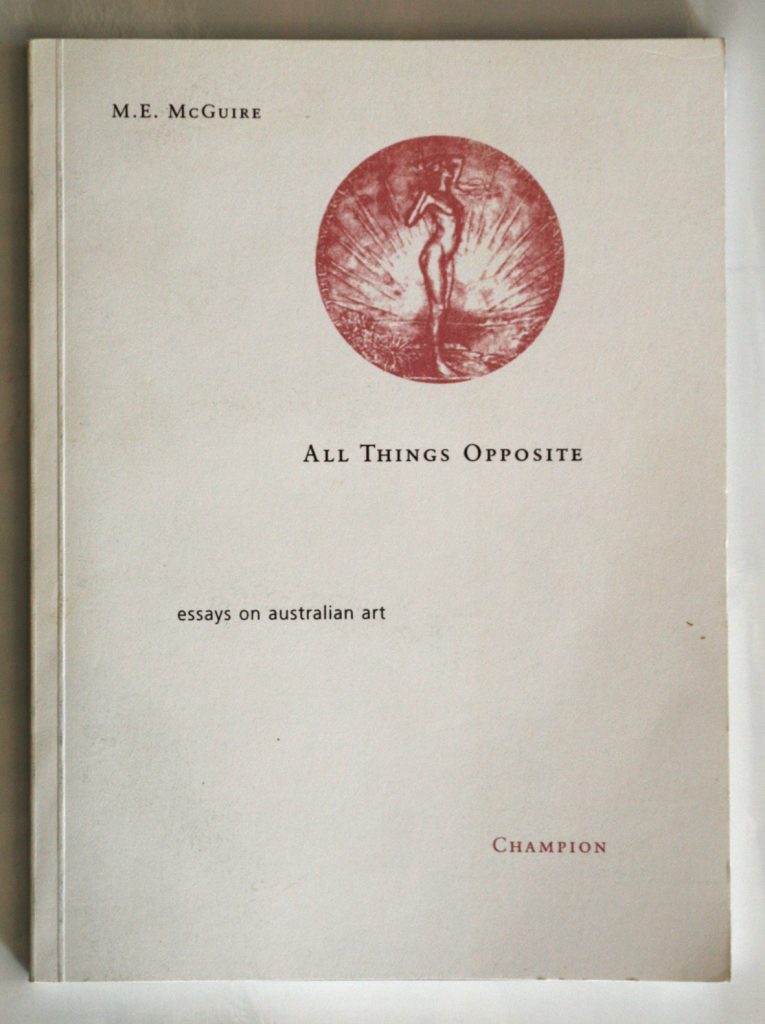
As Ted and Angelika no longer had the desire nor unqualified access to printing presses they decided to produce the 120 page book using photocopy technology. While All Things Opposite was like a farewell signature for Champion Books, it was also a signpost for future possibilities.
The rapid technological advances in offset printing and typesetting that happened in the mid 1970’s followed by the quick adoption of computers in the printing industry during the late 1980’s had made the overlapping aegis of Champion Books and Backyard Press possible. Similarly photocopying All Things Opposite was an example of engaging new technologies to produce and publish a book. From handing over the disc containing the paginated lay-outs to a Kwikopy franchise, the rest of the process was nearly fully automated. The photocopier did the printing, folding and collating of book’s sections and the only other intervention was attaching the printed covers and the guillotining.
Postscript
After the publication of All Things Opposite the focus of Backyard Press became entirely commercial jobbing. Ted and Angelika morphed into Champion Productions. The new company published two notable books based on re-imaging the city of Melbourne: Melbourne by Gollings, Greene, Hopkins, and Melbourne Australia by Gollings, Greene, Hopkins and Emery.
Both editions featured exquisite image printing in a large ‘coffee table’ format. While both were overtly commercial they also had a Champion Books signature with their innovative interpretation of the city and the collaborative endeavour of their contributors; John Gollings (photography), Paul Greene (art director), Ted Hopkins (direction and writer) and Garry Emery (design).
Champion Productions also continued creating and producing multimedia events including Symphony For The Motor Car, Automania at the Drive-In, Automania at the Carpark, Antarctica – Virtual Ice exhibition and What’s For Dinner Thank You multimedia CD.
In keeping with the Champion spirit of innovation, quality, and dare the most recent enterprise was the creation of Champion Data dedicated to sports statistics and analysis.
Also published by Champion Books:
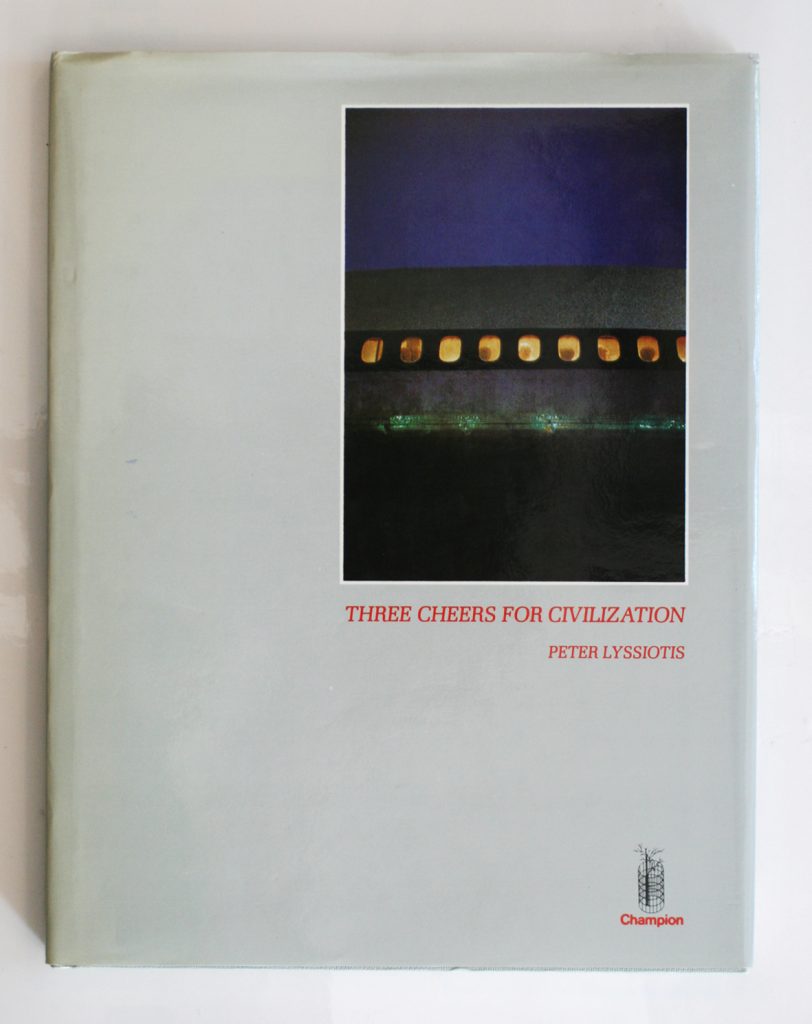

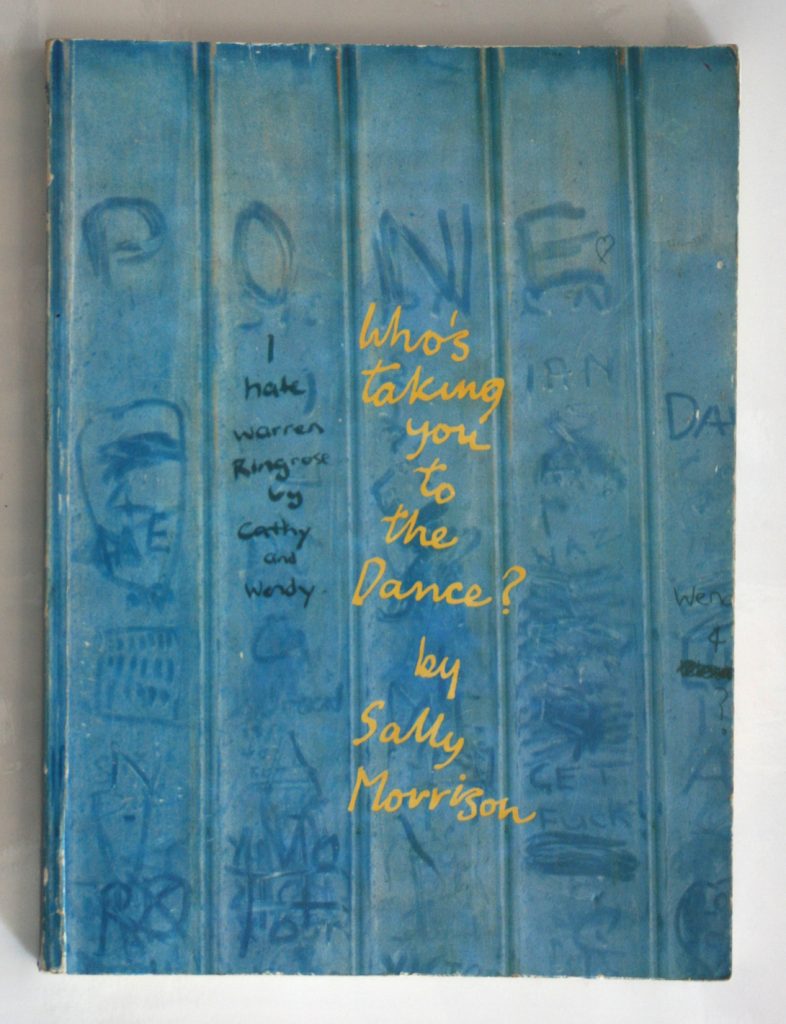




About Ted Hopkins
Ted Hopkin has always been there when the ground is broken. As a kid he was there when the open-cut coal mine in Yallourn was ripping out the guts of the La Trobe Valley. In 1970 he engineered a come-from-behind victory in a Grand Final, at the top level in the Victorian Football League. He then turned his back on that legendary success and returned to country Victoria to found collectives based around food and printing. Later he set up Backyard Press and its publishing arm Champion Books in Prahran. Champion Books published artists’ books before artists’ books had any currency. He and Angelika Oehme reinvented how to interpret and predict the outcome of football games through analysis of statistics—this was Champion Data—their idea, before the big end of white white-anted it all and took over. Today, through Ted Blog, Ted writes his unique perspective on environmental issues, especially within the framework of land use, climate change, and water— thinking that is against the grain—like any good cultural warrior—still breaking ground.
